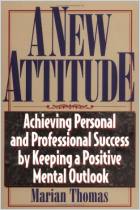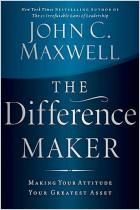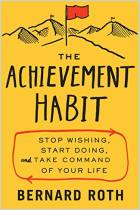
Change Your Attitude
Creating Success One Thought at a Time
Read or listen offline
Amazon KindleRecommendation
Change Your Attitude is rich with examples and interactive exercises for the reader. The authors do an excellent job of providing comic relief at regular intervals, some of which works. The active, participatory style of this book makes it more engaging than other books in the motivational genre. Much of this vitality comes from the impressive amount of research that went into it. The authors reference well over one hundred books, magazines, and newspaper articles, bringing readers a lively cross-section of ideas. The book’s simple failing: Few of these ideas are new. Nevertheless, getAbstract recommends Change Your Attitude as an entertaining book that covers all of the motivational standards.
Summary
About the Authors
Tom Bay is an executive consultant and speaker in the areas of life management, team building, and responsibility. David Macpherson is a senior consultant with the Franklin Covey Co.



















Comment on this summary or Diskussion beginnen